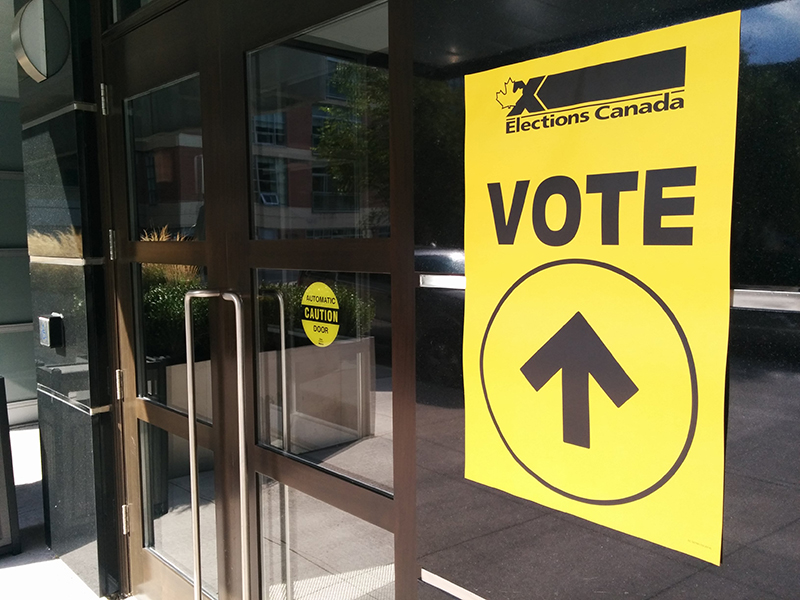A Federal Court has called for Canada’s chief electoral officer, Stéphane Perrault, to reconsider his initial decision not to move the federal election date despite coinciding with the Jewish holiday of Shemini Atzeret.
While the ruling is a plus at first glance for observant Jews who might otherwise be unable to cast their ballots, some Jewish residents are contemplating the greater implications of the case.
The CJN spoke with some voters in the Bathurst Street and Lawrence Avenue area, part of the Eglinton-Lawrence riding, where Conservative candidate Chani Aryeh-Bain, who took Perrault to court over the election date, is seeking to become the local member of parliament.
“It’s a victory so far,” said Eglinton-Lawrence resident Gerry Posner, adding that he feels the government would aim to avoid any decision that negatively affects a significant number of voters.
To be more exact, that number is around 75,000 Orthodox Jews across Canada that will not be able to vote on Oct. 21 due to Shemini Atzeret – not to mention Aryeh-Bain and Quebec candidate David Tordjman, Orthodox contenders who will be unable to campaign on election day.
READ: SHMOOZE: SHEMINI ATZERET VS. ELECTIONS CANADA
Posner stressed that he is in favour of the court ruling, and noted that he feels the Jewish community would support it as well, but wondered whether it would open a can of worms in the future for other groups demanding similar accommodation.
“If you carry the decision a long ways and you apply it to other religions, I suppose you could start seeing this happen in a lot of other ways not contemplated right now,” he said.
Freya Morrison, a resident of York Centre – a riding represented by Jewish MP Michael Levitt – had similar thoughts. “I think (the decision is) good for the Jewish community,” she said, but it also “opens the door for every single other personal enterprise out there to put the same pressure to change dates.”
She did, however, say that the decision is an important step forward for the benefit of Aryeh-Bain’s campaign.
Morrison suggested that, at the very least, an appropriate compromise would be to provide advance polling dates that do not fall on or immediately before dates of religious significance. (The four advance polling dates currently allotted from Oct. 11-14 clash with Shabbat and Sukkot, greatly restricting the number of hours available to observant Jews to vote prior to Oct. 21.)
Harold Heilbut, another resident of York Centre, agreed. “It’s all a matter of accommodation,” he said, “and you cannot accommodate every religious area in Canada. But you’ve got to be accommodative, and by being accommodative you change the advance polling dates. That’s how I feel we should compromise.”
Some residents also commented on how vocal the Jewish community should be about the issue, with some even wondering whether there is a correlation between advocating and sparking anti-Semitism.
One Jewish resident, Samuel (who did not want to provide his last name), said that while he is grateful for the steps taken to accommodate the Jewish community, “My personal attitude is always just to lie low as much as you can. The more public face we make, the more concerning threats of anti-Semitism become.”
Others felt the exact opposite.
Rabbi David Cooper, a resident of York Centre, said he doesn’t usually vote on election day, but that the ruling is a “massive step” forward and a “major triumph” for the Jewish community. He stressed the need for the Jewish community to be active and stand together in matters like this, regardless of denomination.
“I think we have to stick to our guns,” he said, “I think the Jewish community needs to be solidly behind this date change.”
Perrault has until Aug. 1 to review his initial decision. If he does decide to reconsider, he can then recommend to cabinet to change the Oct. 21 election date.
